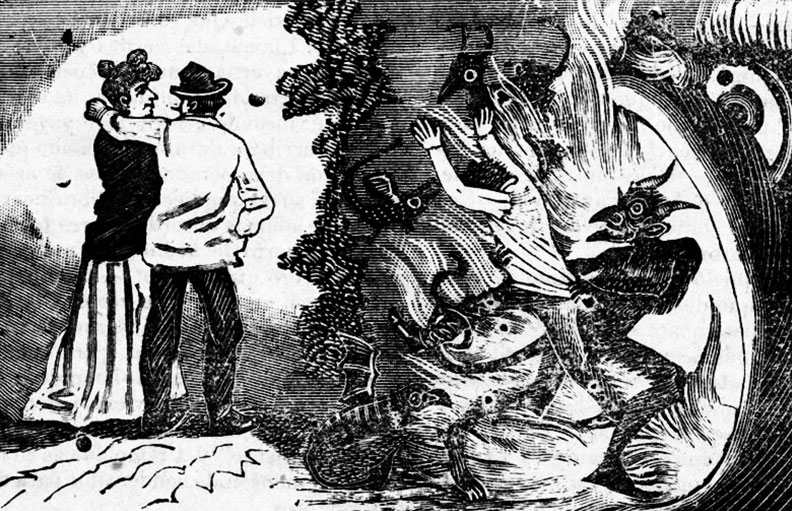2666

‘Ejemplar Acontecimiento! Un Espiritu maligno en figura de mujer bonita’ (cf.)
The style was strange. The writing was clear and sometimes even transparent, but the way the stories followed on after another didn’t lead anywhere: all that was left were the children, their parents, the animals, some neighbors, and in the end, all that was really left was nature, a nature that dissolved little by little in a boiling cauldron until it vanished completely (887).
2666 has many attractions: it’s posthumous (which is always interesting), it has murder, books, writers, detectives, mystery, and even vampires. Reading it, though, I felt its publisher did it a disservice by printing it in one volume. Although the five parts are supposed to comprise one whole, the sum of those parts is greater than the whole; they would have made more sense appearing over a span of years instead of pressed together as a cenotaph. It’s an unfinished work, a failure as a work of art, though more brilliant as an attempt than many ‘triumphs’ of modern literature. 1 Bolaño tries to head off this criticism and to lay the blame on the weakness of the reader in several places, most notably in the much quoted passage:
Now even bookish pharmacists are afraid to take on the great, imperfect, torrential words, books that blaze paths into the unknown. They choose the perfect exercises of the great masters. Or what amounts to the same thing: they want to watch the great masters spar, but they have no interest in real combat, when the great masters struggle against something, that something that terrifies us all, that something that cows us and spurs us on, amid blood and mortal wounds and stench (237).
It’s obvious 2666 is such a book – or that Bolaño sees it as one: a struggle against death, against mortality. The more I read of it, the more I respected it; but it’s not a masterpiece and I kept wanting to read the book it might have been had time allowed – or, at the very least, a better book by the same author. It’s not a bad book – quite the opposite – but I couldn’t get over the feeling that every word I read screamed: ‘I am a literary novel, you must respect me’ – which is I suppose what they mean when they say that a novel is ‘compelling’. Compulsion rather defeats the purpose of that respect, though, doesn’t it? 2
- You may choose whatever name suits your fancy to imagine in this footnote; be cruel, be cutting, be true.[↩]
- Cf. Virginia Woolf in A Writer’s Diary (7 Feb. 1931):
Here in the few minutes that remain, I must record, heaven be praised, the end of The Waves. I wrote the words O Death fifteen minutes ago, having reeled across the last ten pages with some moments of such intensity and intoxication that I seemed only to stumble after my own voice, or almost, after some sort of speaker (as when I was mad) I was almost afraid, remembering the voices that used to fly ahead. Anyhow, it is done…
[↩]
